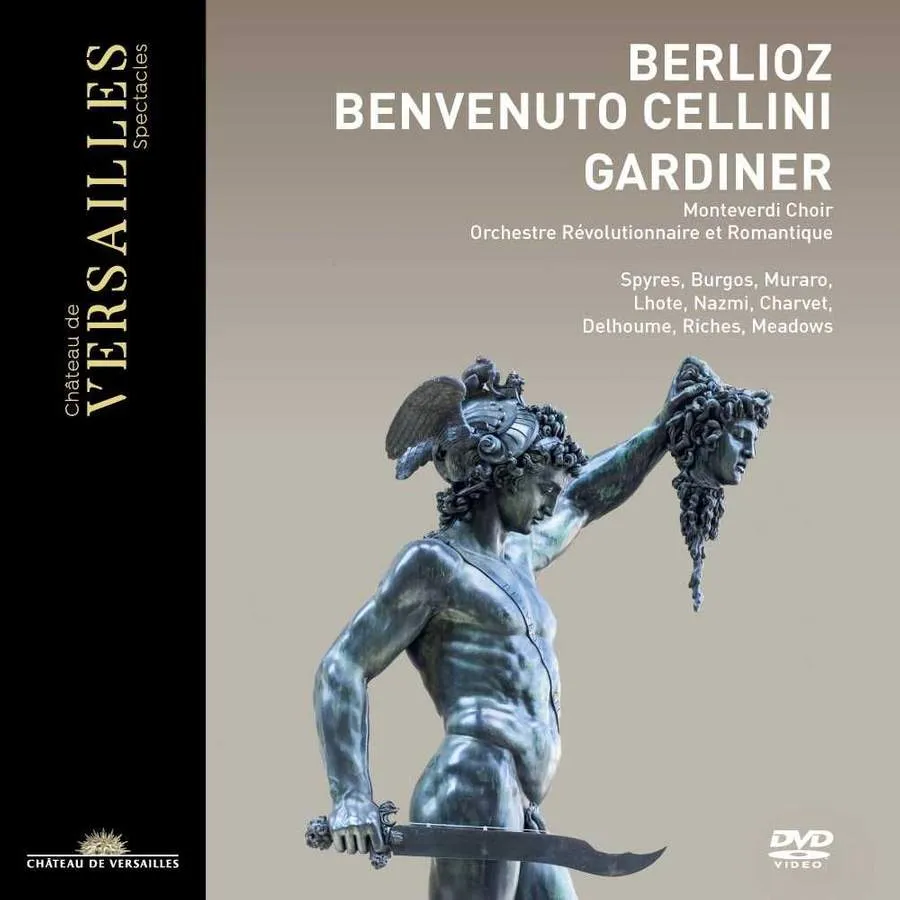
Berlioz Benvenuto Cellini Michael Spyres, Sophia Burgos, Maurizio Muraro, Tareq Nazmi, Adele Charvet et al; Monteverdi Choir; Orchestre Révolutionnaire et Romantique/John Eliot Gardiner Chateau de Versailles CVS020 (DVD) 120:53 mins
Berlioz’s first opera isn’t very often performed, and it’s not difficult to see why. It is pretty long, there are few memorable melodies in it and the composer’s libretto is distinctly homemade. The basic plot is that the great sculptor and layabout Cellini has to complete a statue for the Pope, with the ultimate penalty if he fails. But Berlioz is so keen to create and maintain atmosphere that the central idea disappears for half-hours at a time, while miscellaneous characters hold up the action and there is a carnival – The Roman Carnival Overture is the only celebrated piece in it, and occurs fairly late in the work. This production is of a semi-demi-staging from Versailles, charming but confusing, since some of the singers are happy to act whilst others are content to sing. Gardiner is a passionate Berliozian, and brings to the playing both excitement and precision. The singers – the men dressed in florid waistcoats-cum-dressing gowns – are mainly up to Berlioz’s strenuous demands, with Michael Spyres superb in the title role, and Sophia Burgos excellent as his beloved Teresa. But her father Balducci is sung by an Italian bass who has a pronounced wobble and is a blot on the cast.
There are stretches in Cellini, as in almost all Berlioz’s larger works, when I wonder why he seems to have forgotten the main plot and to be too intrigued with the possibilities of the orchestra. The cumulative power of the greatest operas escapes him, and when he reaches the climax he often gives it rather perfunctory treatment. I feel that about Cellini, but there is enough fine music in it for an occasional viewing and listening.
Michael Tanner